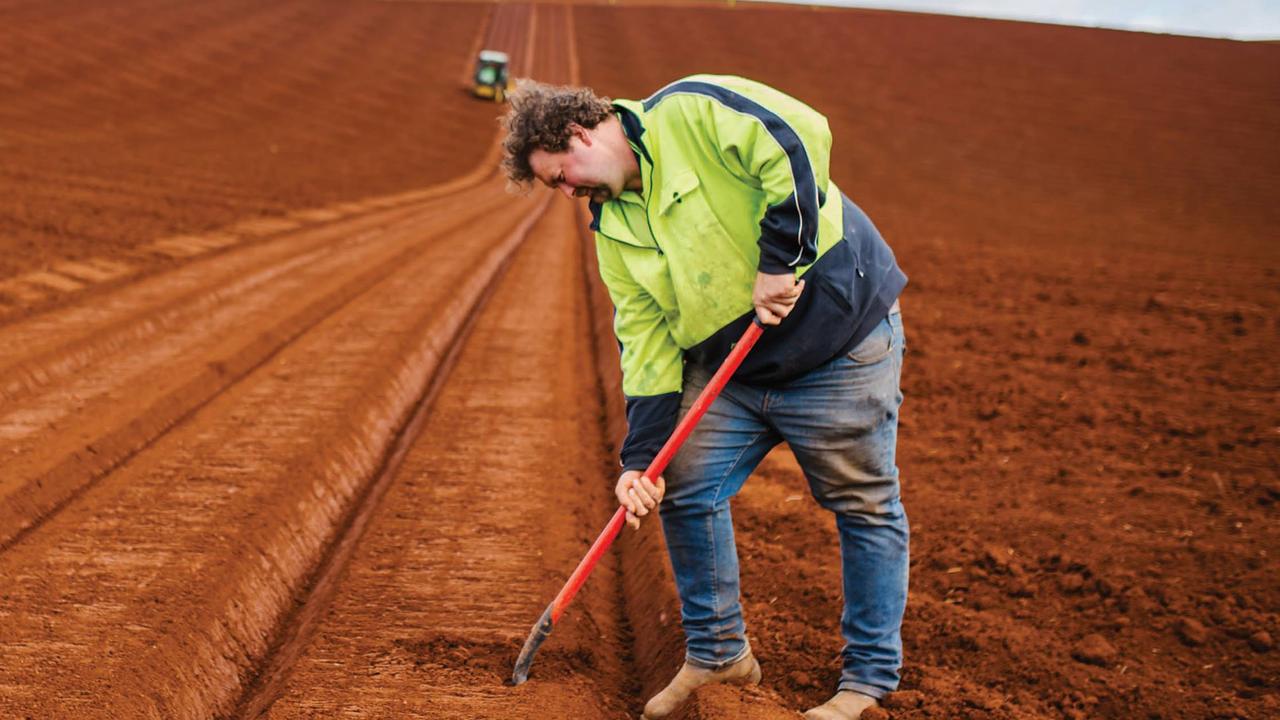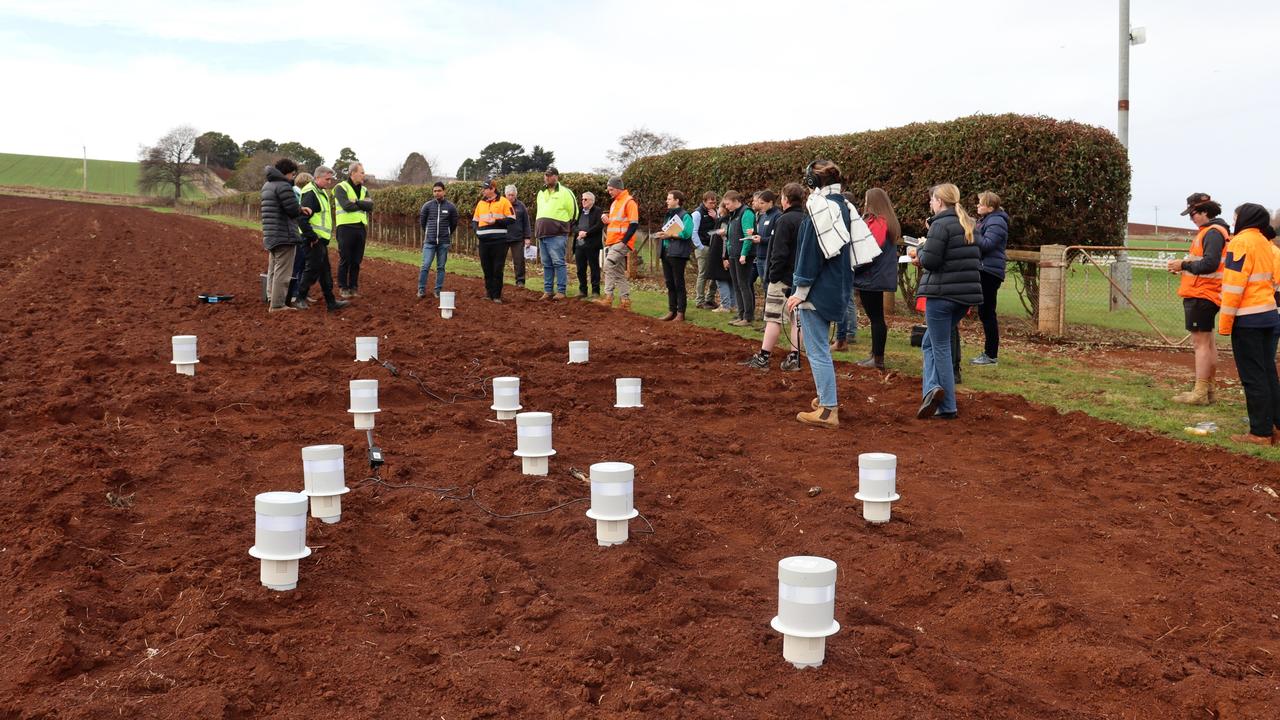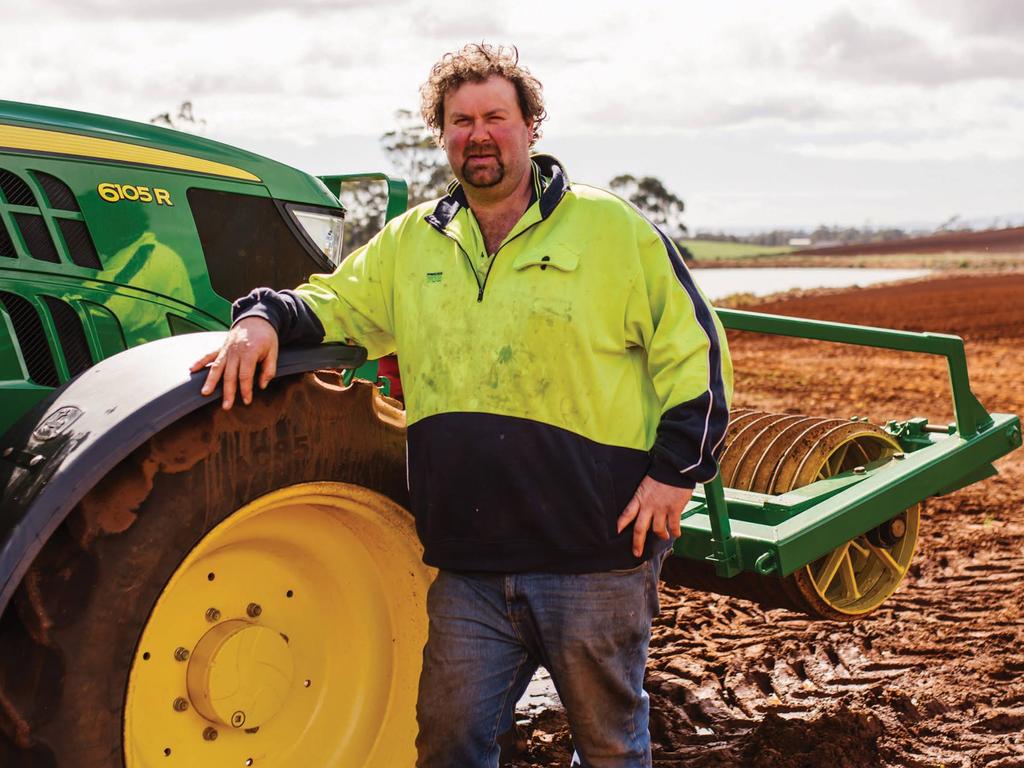TIA researchers developing new technology called QUOLL that can sniff soil to detect its quality in rapid time
Quolls are famed for their excellent sense of smell. Researchers hope to replicate the animal’s senses in a new technology they are developing to rapidly detect diseases in soil.

A handful of farmers have seen first-hand how a new piece of technology can provide “a rapid test of soil activity” in a field in Tasmania’s North-West.
University of Tasmania (UTAS) researchers at the Tasmanian Institute of Agriculture’s (TIA) Ag Tech Innovation Centre have developed a soil sensor called QUOLL.
TIA Research Engineer in Agriculture Simon Edwards said the device was recently deployed at its Forthside Vegetable Research Facility for its first on-farm trial.
Those in the agricultural industry were also invited to the facility to see the technology in action and offered to host the device on their properties as part of the trial.

“We’ve been developing an electronic nose called the QUOLL that can detect the aroma of soil and provide a rapid test of soil activity,” Dr Edwards said.
“It can help farmers make informed decisions about how to best manage their soil and be more productive and resilient to environmental changes.”
Dr Edwards said the device works by sampling gases in the soil and is fitted with mini sensors that detect various compounds produced by biological activity.
“It takes a sniff of the soil a couple of times each hour to collect data over a few days that gives us an insight into what is happening in the soil.
“It’s fast and simple to use.
“It can reveal when changes in the soil are happening and give farmers the opportunity to make an informed choice about land management practices.
“It removes the need to do soil testing and is easier, faster and hopefully cheaper.”

Deon Gibson is the farm manager at Premium Fresh, a vegetable-growing company based at Forthside, and went along to see the technology.
“I was a bit sceptical about it all,” Mr Gibson said.
“But looking at the QUOLL in person, if they can get the sensors and bits and pieces to be relevant to what diseases and issues we’re trying to find in the ground, they’re onto something.
“There’s a lot more work to do to get some background of what it all means. It’s all right to get the data, but then you got to work out what it means.
“After spending a bit of time looking at it, I think there’s a place for it.”
UTAS researchers say the project’s next stage is to look at potentially making the QUOLL able to monitor carbon cycling in soil.
More Coverage
Originally published as TIA researchers developing new technology called QUOLL that can sniff soil to detect its quality in rapid time




